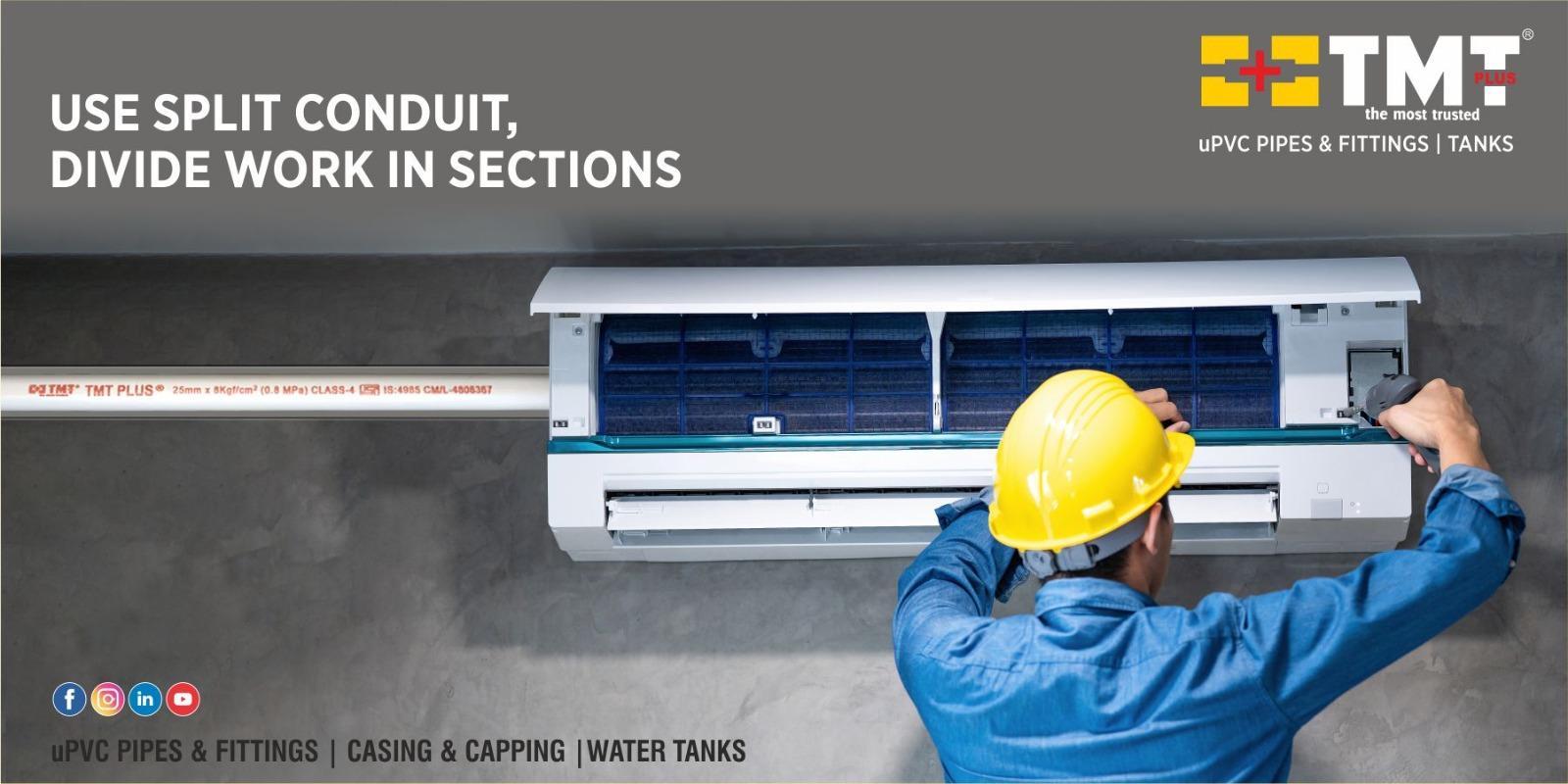An electrical conduit, whether made of metal or PVC, serves as a protective tube for routing electrical wires. It comes in rigid or flexible variations and is employed in various settings, including exposed areas like exterior walls, unfinished spaces such as basements and underground rooms, and surface-mounted outdoor installations.
Handling PVC electrical conduit pipe installation or repairs, like most electrical tasks, is advisable to entrust to a professional electrician. Dealing with live wires requires extra caution, and if you are still learning the components of an electrical wiring system, it’s not recommended to undertake this task on your own. In this article, we will list 5 tips for properly installing conduit pipe in cramped spaces.
Five tips for installing conduits in tight spaces
Installing conduit pipe electrical conduit pipes in tight spaces poses challenges, but with the right planning, mapping the exact contours of the space, and then executing the plan, efficiency can be achieved. Here are some tips to help you in the process.
- Planning and measurement: Accurately measure the installation space for the conduit. Plan the conduit route, considering corners, obstacles, and overall layout.
- Flexible conduit: Opt for flexible conduit, as it adapts well to tight spaces around obstacles. It is especially useful in areas where rigid conduit installation may be challenging.
- Conduit pre-bending: Pre-bend conduit as required before installation to save time and facilitate fitting into tight angles. Use a conduit bender for precise bends without damaging the conduit. Consider offset fittings for smoother navigation around tight corners.
- Split conduit in confined spaces: Use split conduit in extremely confined spaces; it opens along its length for easier maneuvering around existing structures.
- Work in sections: Divide conduit installation into manageable sections for easier handling and placing in tight spaces. Connect sections using appropriate fittings, ensuring a secure and continuous conduit path.
Features of uPVC conduit pipes
- Non-conductive material: uPVC is an electrically non-conductive material, making it well-suited for electrical applications by preventing the conduction of electricity. This characteristic significantly enhances the safety of the entire electrical wiring system.
- Corrosion resistance: uPVC conduit pipes exhibit resistance to corrosion induced by moisture, chemicals, and environmental elements. This resistance ensures enduring durability and reliability across diverse conditions.
- Immune to chemicals: uPVC displays resilience against a broad spectrum of chemicals, safeguarding both the conduit and enclosed wires from potential harm due to exposure to corrosive substances.
- Lightweight: uPVC conduit pipes have the desirable property of being lightweight, facilitating easy transportation, handling, and installation, which makes them the best electrical pipe for house wiring.
- Smooth inner surface: The inner surface of uPVC conduit pipes is incredibly smooth, making the pulling and pushing of wires during installation a seamless process. This design minimizes friction and reduces the risk of wire damage.
- Inherent fire resistance: uPVC possesses inherent fire resistance, contributing significantly to the overall safety of the electrical system. It neither supports combustion nor contributes to the spread of fire.
- Ease of cutting and installation: uPVC conduit pipes offer ease of cutting to desired lengths, providing flexibility during installation. Additionally, they are equipped with a variety of fittings and connectors that streamline the installation process.
- Low thermal conductivity: uPVC’s low thermal conductivity means it does not readily transfer heat. This property proves advantageous in maintaining stable temperature conditions around the electrical wiring.
- Cost-effectiveness: uPVC conduit pipes are frequently recognized for their cost-effectiveness compared to alternative materials. This affordability proves valuable in both residential and commercial installations.
Why TMT Plus is your ideal brand for electrical conduit needs
TMT Plus manufactures high-quality, cost-effective, and easy-to-install conduit pipes, which makes them one of the top-notch PVC conduit pipe manufacturers. Their products in electrical and sanitary piping adhere to world-class standards and provide impeccable service to customers.
Operation of electrical equipment is dependent on safe, reliable, and secure electrical connections. Electrical conduit pipes safeguard electrical connections, so knowing what they are, its varieties available and what to consider when installing conduit pipe is very critical.
Are you looking for high-quality electrical conduit and fittings? TMT Plus has got your back. as we are an industry leader and provider for flexible electrical conduit and fittings.



